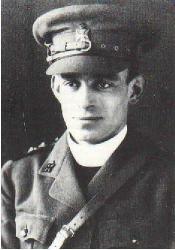Planning worship?
Check out our sister site, ZeteoSearch.org,
for 20+ additional resources related to your search.
- |
User Links
Person Results
David Evans
1874 - 1948 Composer of "CHARTERHOUSE" in At Worship David Evans (b. Resolven, Glamorganshire, Wales, 1874; d. Rosllannerchrugog, Denbighshire, Wales, 1948) was an important leader in Welsh church music. Educated at Arnold College, Swansea, and at University College, Cardiff, he received a doctorate in music from Oxford University. His longest professional post was as professor of music at University College in Cardiff (1903-1939), where he organized a large music department. He was also a well-known and respected judge at Welsh hymn-singing festivals and a composer of many orchestral and choral works, anthems, service music, and hymn tunes.
Bert Polman
David Evans
Alfred Scott-Gatty
1847 - 1918 Person Name: Alfred Scott-Gatty, 1847 - 1918 Composer of "WELWYN" in The Hymnary
Alfred Scott-Gatty
Geoffrey Anketel Studdert Kennedy

1883 - 1929 Person Name: G. A. Studdert-Kennedy, 1883 - 1929 Author of "When through the whirl of wheels" in The Hymnary Born with Irish heritage to the vicarage in a deprived parish in Leeds. Studdert Kennedy got into Trinity College Dublin at the age of 14, though poverty meant he did not attend until later, graduating with a First Class degree. He was a popular teacher at Calday Grange Grammar School on the Wirral Peninsula before entering the Anglican Ministry; ordained in Worcester Cathedral in 1908 and married in 1914. He worked in deprived parishes: in Rugby, with his Father in Leeds and St Paul's in Worcester. He was known for his forgetfulness, his generosity (he famously gave away the marital bed to an old lady in need recruiting his wife to help carry the mattress) and his plain speaking.
He became a military chaplain (AKA the Padre) in 1915. He spent time with the men waiting to go to the Front speaking with them and offering to write letters home. He carried a large canvas sack of New Testaments and Woodbine Cigarettes to distribute, often staying on the trains up to the front well after they had left the station earning great popularity and the affectionate nickname Woodbine Willie. In 1917 he was awarded the Military Cross for fetching morphine for a first aid post on the Front while under bombardment and repeatedly going to help the wounded or bury the dead in No Man's Land. During the war his first collection of poetry "Rough Rhymes of a Padre" was published and he achieved widespread national fame. His poems did not shy from the horrors of war or questions of faith raised. He was always on the side of the 'ordinary man'.
After the war he continued in parish ministry before taking an itinerant role with the Industrial Christian Fellowship (still operating) where he proclaimed the gospel and fought for the disadvantaged. He died in Liverpool 1929 intending to keep a commitment despite exhaustion. His memorial in Worcester Cathedral says "A poet: a prophet: a passionate seeker after truth: an ardent advocate of Christian fellowship." His hymns are taken from his collections of verse later anthologised in The Unutterable Beauty (1927).
David L. Gent
Geoffrey Anketel Studdert Kennedy
Frederick G. Russell
1867 - 1929 Person Name: Frederick George Russell, 1867-1929 Composer of "LOMBARD STREET" in Pilgrim Hymnal
Frederick G. Russell
William Lester
1889 - 1956 Composer of "INDUSTRY" in The New Hymnal for American Youth Lester, Thomas William; b. 9-17-1889, Leicester, d. 12-4-56, Berrien Springs, Mich.; English organist and composer; came to the US in 1902
William Lester


 My Starred Hymns
My Starred Hymns

